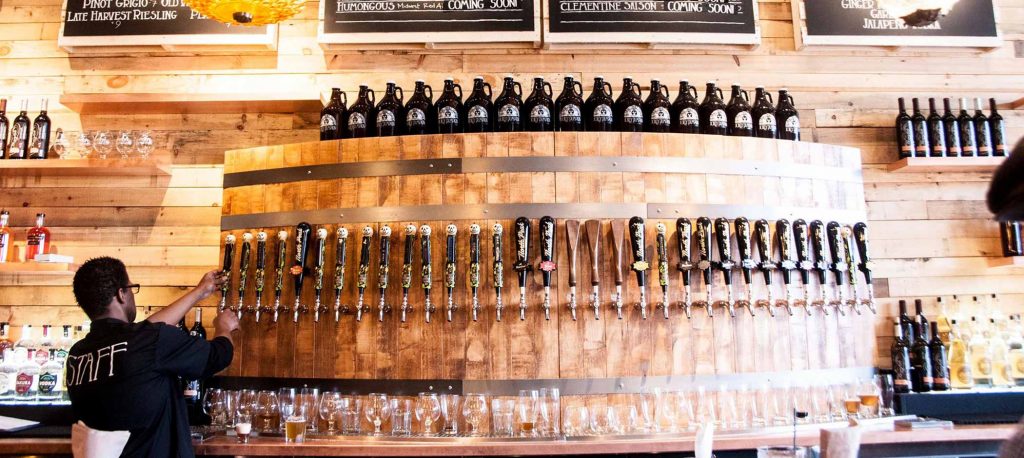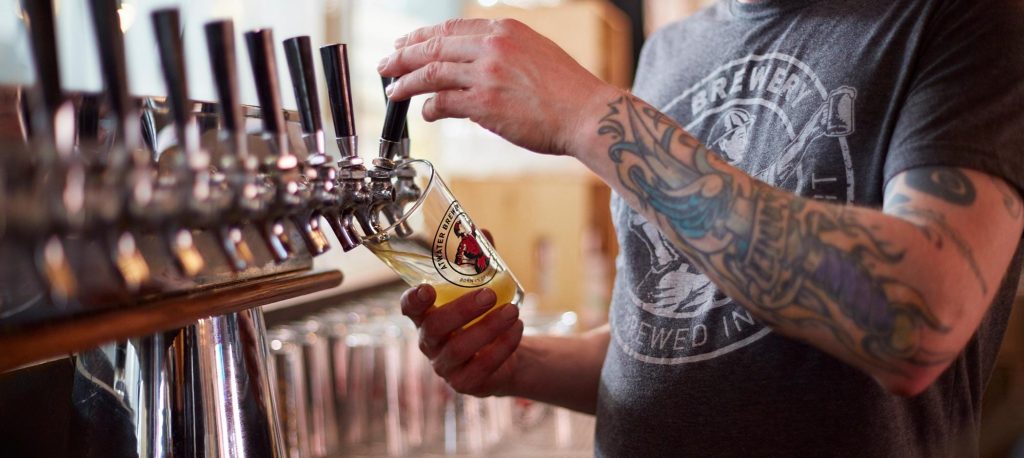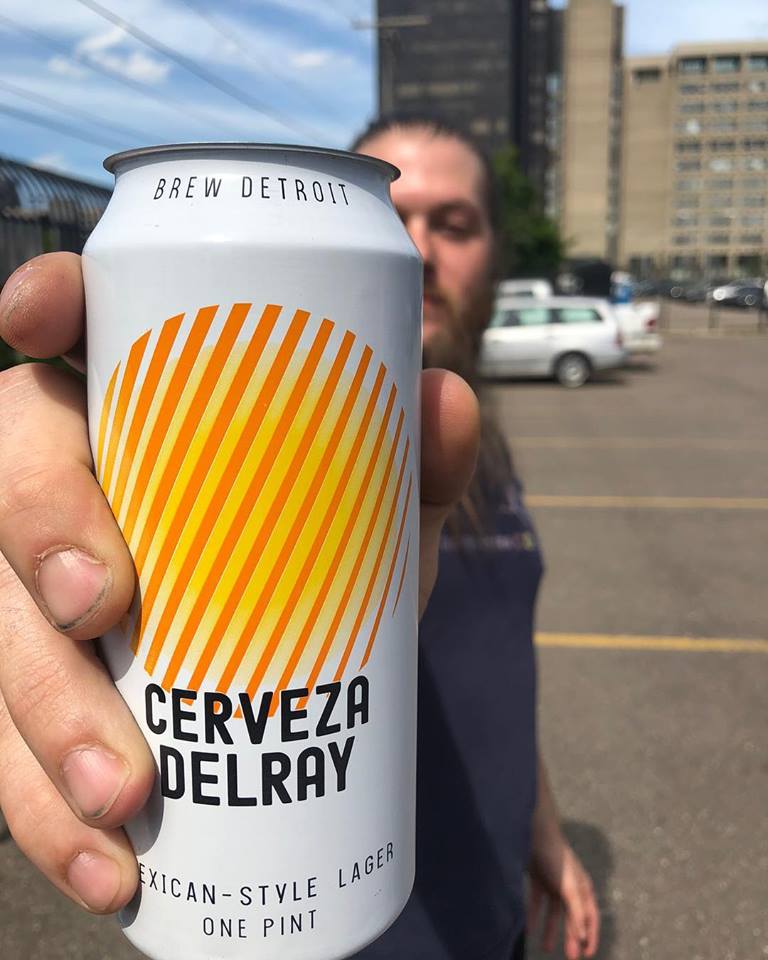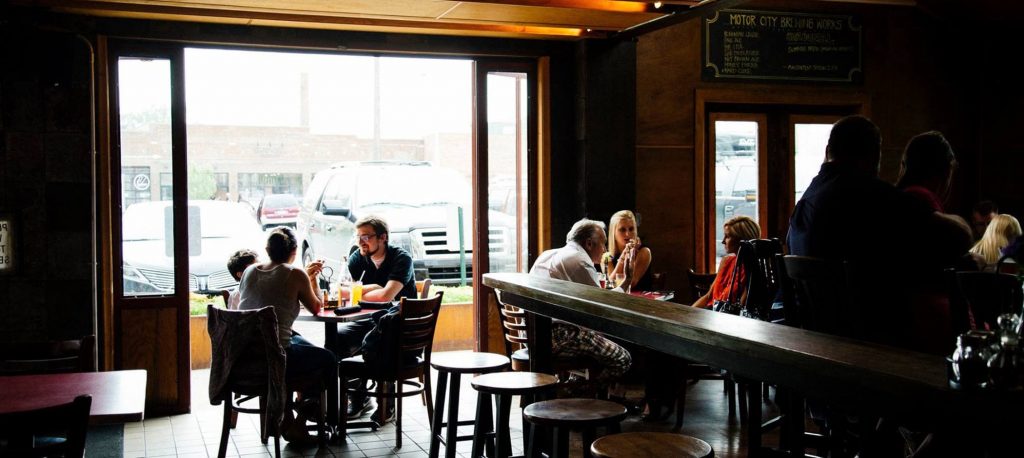Maybe you can’t wait for that first sip of Oberon when the weather warms up.
Maybe the place you love to stop for a sandwich has a brewery in the basement.
Maybe you have a brother who brews beer in his kitchen and never shuts up about it.

Craft beer has jumped out of the shadows, and almost every beer drinker is familiar with at least a few brands.
That new visibility means money for any city with local breweries. Cities like Detroit and Flint have those breweries, and the profits in the industry are increasing.
According to the Brewers Association, the Boulder, Colo.-based trade association for independent craft breweries, the craft beer industry has a $2 billion economic impact on Michigan.
Craft beer makes up 11 percent of all beer sold in Michigan and has had impressive growth for years, even under strange circumstances, according to the Michigan Brewers Guild.

The guild also points out that from 20008 to 2017, there was a drop in total beer sales from 6,589,461 bbls (a US beer barrel or bbl is 31 gallons) to 6,023,119 bbls. That is a total loss of 566,342 bbls.
During that same decade, there was an impressive increase in Michigan-made beer sold in the state from 119,075 bbls to 603,734 bbls.
Clearly there is an increased desire for local and semi-local beer brands, despite the slightly higher cost.
“They are more flavorful,” says Scott Graham, executive director of the Michigan Brewers Guild.
He says people want to have something local and more distinctive than the big brands. “People like being able to identify their beer.”
This money doesn’t stop at the brewers, it continues into local restaurants, party stores, other suppliers, and more.

“From malthouses and hop farms to breweries and local retailers, the beer industry continues to have a positive impact on Michigan’s economy throughout the entire supply chain, and we expect this growth to continue,” says Paul Quasarano, president of Eastown Distributors in Detroit. “Michigan is home to some of the most innovative breweries in the country and is now a Top 5 beer producer, making it not just the Great Lakes State but the Great Beer State, too.”
A study from by Michigan State University found that every dollar spent on craft beer has the following distribution into the larger economy:
- 65.9 cents to retail or food service
- 9.3 malting barley
- 8.4 cents to distributers
- 6.8 cents to state and federal taxes
- 6.2 cents got to hops
- 3.4 cents go to the brewer
Part of the success has come from festivals that focus on Craft Beers and “beer tourism.”
It is not uncommon for visitors to try local beer when they visit a new city or state. However, in recent years the beer has become reason for the visit, with tastings, festivals and bar crawls.
The Michigan Brewers Guild puts on its own events and has noticed an increase in local economies. Graham says he’s seen a positive impact on hotels and local restaurants. So much that the guild often coordinates with locals to make sure things run smoothly.

Detroit and Flint are no strangers to such festivals pooling resources to pull in dollars. The Guild represents 81 breweries in metro Detroit and eight in Flint. The Michigan Beer & Wine Wholesalers Association represents another five in Genesee County.
The dense populations in each city mean a lot of potential attendees, even before the tourists show up.
The 11th annual Detroit Fall Beer Festival will be held in Eastern Market October 25-26 and is one of the largest beer tasting around. Click here for more information.
You can click here for information on metro Detroit breweries provided by Visit Detroit.
 Why craft beer has had such a boom in Michigan could be any number of things, but Graham has a simple answer that just may be best.
Why craft beer has had such a boom in Michigan could be any number of things, but Graham has a simple answer that just may be best.
“Because it tastes so good.”
Top photo of Detroit Brew Company courtesy of Detroit Metro Convention & Visitors Bureau. The brewery is located near Comerica Park, Ford Field and the Detroit Opera House.
This small business feature is sponsored by Bank of America. To learn more about Bank of America’s many programs and resources visit: https://www.bankofamerica.com/smallbusiness/business-financing.go.


